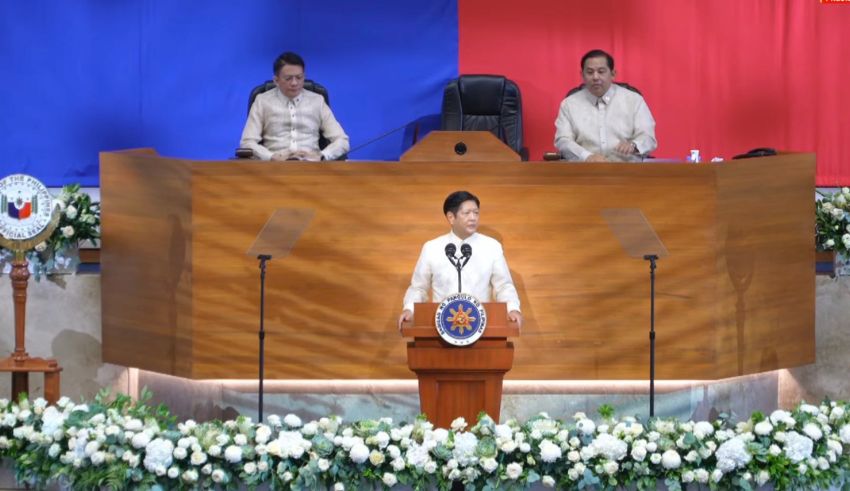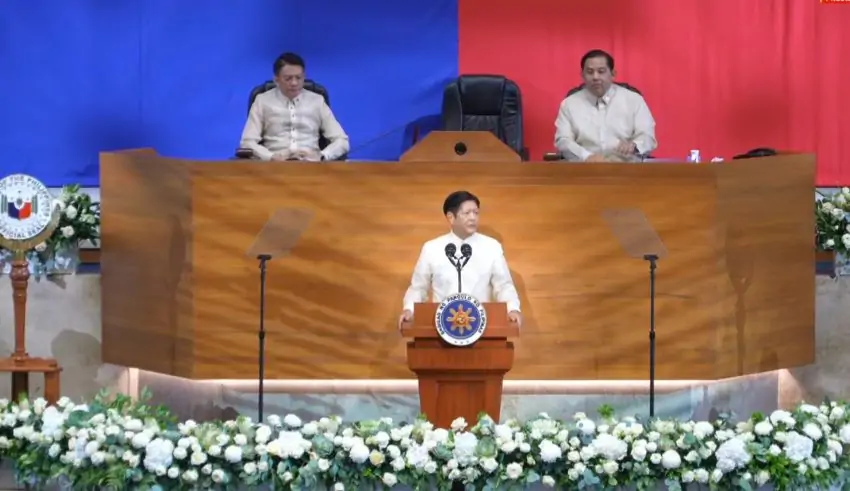

(C) Bongbong Marcos
During his third State of the Nation Address (SONA) on Monday, President Ferdinand Marcos Jr. decisively declared a blanket ban on all Philippine Offshore Gaming Operators (POGO). This announcement responds to the public desire to completely stop these operations from running across the nation.
“Effective today, all POGOs are banned,” Marcos said. Emphasizing the widespread criminal activity linked with these operators, he said, “Disguising as legitimate entities, their operations have ventured into illicit areas farthest from gaming such as financial scamming, money laundering, prostitution, human trafficking, kidnapping, brutal torture, even murder.” Emphasizing that the “great abuse and great disrespect to our system of laws must stop,” the President said
For some years, POGOs have caused controversy in the Philippines. Originally hailed for the alleged economic gains—job creation and major tax revenue among other things—the darker side of these activities quickly became clear. The news has been inundated with accounts of financial frauds, money laundering operations, and other criminal activity connected to POGOs, therefore presenting a negative picture of their influence on Philippine society.
Furthermore, the flood of foreign labor connected with POGOs has caused public services to be stretched and social conflicts. Unchecked expansion of the business has sometimes been blamed for corruption and regulatory capture; some officials purportedly ignore their illicit operations.
Marcos ordered the Philippine Amusement and Gaming Corporation (PAGCOR) to stop running both licenced and illegal POGOs by the end of the year in order to enforce this ban. This strict criterion is meant to solve the serious problems resulting from these activities. Responsible for controlling all gambling operations in the Philippines, PAGCOR will be very important in destroying the infrastructure enabling POGOs.
Task of PAGCOR will not be simple. Stopping these activities means canceling permits, tracking compliance, and working with law authorities to make sure illicit operators stop their covert activity. The agency will also have to manage possible legal challenges from drivers objecting to the prohibition.
Acknowledging the possible employment displacement brought about by this ban, the President also directed the Department of Labor and Employment (DoLE) to work with the administrative economic managers. “Use the time between now and then to find jobs for our countrymen who will be displaced,” Marcos said.
One cannot undervaluate the effect of this ban on the labor market. POGOs or in allied sectors including real estate, food services, and transportation directly employ thousands of Filipinos. The government’s challenge will be to integrate these employees into other industries and minimize the economic disturbance brought about by POGO operations’ abrupt closing.
Although the immediate focus is on addressing the criminal activity and social difficulties connected with POGOs, the ban has major financial consequences. POGOs have paid taxes and fees totaling billions, which the government now has to substitute from other sources. This income loss can affect public service and development project financing.
The government could thus have to look at other revenue sources and boost development in other industries in order to balance this. This can entail increasing assistance for nearby companies, drawing foreign direct investment in non-gaming sectors, and advancing travel and other service sectors.
President Marcos agreed that this prohibition would not be a cure for all problems even if he is hopeful it will help many of the persistent problems in the nation be resolved. He said, “this will solve many of the problems that we are encountering, but it will not solve all of them.”
With his strong opposition to POGOs, the President signals a clear will to preserve the rule of law and protect public welfare, therefore addressing the many problems presented by these operators. Still, the way forward presents difficulties. Successful application of this ban will depend on coordinated efforts across several government departments, strong law enforcement, and efficient management of the social and financial consequences.
The government would have to keep alert going ahead to make sure POGO operators cannot find means to break the ban. Strict enforcement and ongoing observation will be required to stop illegal gaming activities from returning. Public awareness programs also enable people to learn the causes of the prohibition as well as the advantages of a POGO-free Philippines.
Finally, the historic action taken by President Marcos Jr. to forbid POGOs is meant to solve the major problems related to these operators. Although the immediate emphasis is on eradicating the criminal activities and social issues connected to POGOs, the long-term success of this project will depend on efficient implementation, economic changes, and continual surveillance.
The love towards Asian dramas is expanding everyday and audiences are curious in exploring the diverse contents in various languages…
‘The Haunted Palace’ is a historical rom-com K-drama which premiered on 18 April 2025 on SBS TV and it is…
ITZY dominates the playlist of South Korean and even the global music lovers as they exquisitely blend the electropop with…
“Every beginning has an ending”, today is one such end to the wonderful and resilient test career of a legend…
Singapore’s leading bus operator SBS Transit plans to start testing its innovative AI-braking system in early 2026. Working with Chinese…
The six attacks by ship sailing in the Singapore strait in five days this month has activated a spate increase…
This website uses cookies.
Read More